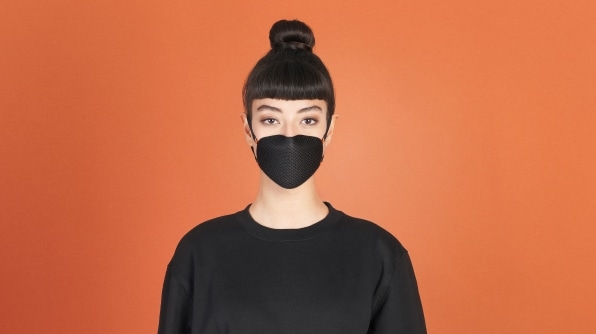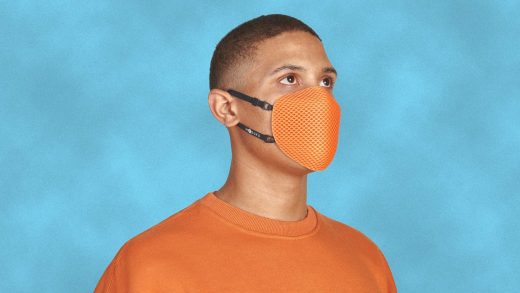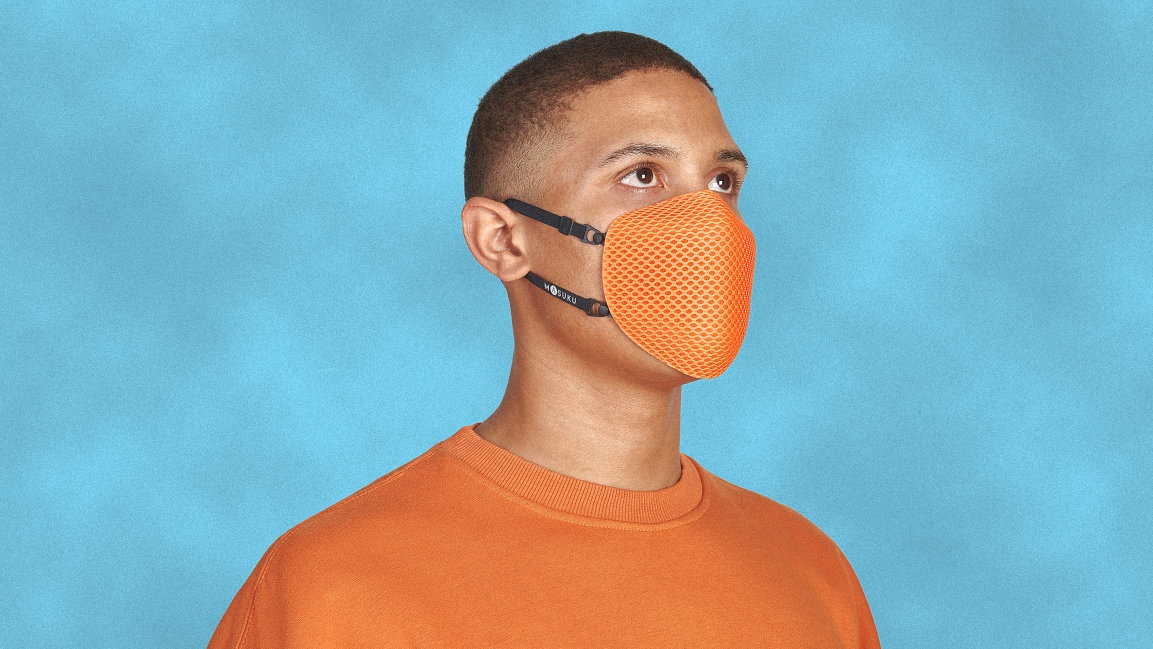When this mask wears out, you can send it back to be recycled—and compost the filter
“The idea was to create a mask that’s at the same level as a product as consumer electronics, fashion, and other product categories are,” says Johann Boedecker, CEO of Pentatonic, the design and technology company that cofounded the startup along with model and entrepreneur Natalia Vodianova. “That includes wearability, because only a mask that you’re comfortable wearing will protect you, and breathability, because most masks out there aren’t breathable enough to feel comfortable, especially if you’re taking a brisk walk or doing any kind of physically strenuous activity.” The founders also wanted to create a mask that wouldn’t end up in landfills (or in incinerators, where they could create even more air pollution).
The company’s new mask filters out 94% of particles, a similar performance to the N95 masks that are considered the gold standard in the U.S. for coronavirus protection or on construction sites. At the core is a new filter made from PHB, a bio-based material that is designed to be compostable. “It’s something that doesn’t only degrade, but it’s actually metabolized by organisms,” he says. “Various types of bacteria can eat it.”

The designers developed the filter from scratch, using a new electrospinning process to make very fine fibers—each as much as 1,000 times smaller than a human hair—arranged in a uniform grid, like a microscopic spiderweb. Standard masks use a random pattern of fibers to catch particles and “look a bit like spaghetti in an electron microscope,” Boedecker says. The new approach, which the company produces in its own custom-developed factory, means that the filter can be less than a hundredth of the weight of a filter in a conventional mask because it uses less material, and since they can control the layout, they can eliminate most of the gaps between fibers.
With a thinner filter, “You use much less material, and you don’t need to exert as much effort to breathe through it,” he says. That also means that the mask doesn’t have to fit as tightly to the face, although the curved shape is designed for a close fit. “The need for a super tight fit in part comes from the fact that the filters of conventional masks aren’t very breathable,” he says. “If you have something that has a lot of resistance, trying to suck the air through it makes the air want to go around it more, so you need a really tight fit to force the air through the filter. As your filter becomes more breathable, you don’t need to seal it as tightly.”
In the company’s first mask, out now, called Masuku One, the filter is sandwiched inside a soft fabric mesh made from recycled PET, which can be washed and reused. When it eventually wears out, the material, frame, and ear straps can be sent back to the company to be recycled. The mask was carefully designed for easy disassembly, with two main pieces that are ultrasonically welded together instead of stitched with another material. If someone taps a chip in the mask with their phone, it’ll show instructions for recycling the mask, specific to their local information. The compostable filter is a little more complicated—the company is still working with composting facilities to figure out the best way to handle the material, since ordinary masks aren’t allowed in city compost, and the new filters might be pulled out if they aren’t clearly marked. Ultimately, it should be possible to compost the filter in a backyard bin, though the company is still getting final certifications. (The filters shouldn’t be discarded outside in nature, despite the fact that they can decompose.)
Although the vaccine rollout is speeding up, it’s possible that we’ll still need to wear masks to protect against COVID-19 through 2022. And mask wearing may become more mainstream even after the pandemic. In the Western world, as we reel from the pandemic, wearing a mask while sick may become more standard in the future, the way it’s a normal part of the culture in parts of Asia. And masks can also help mitigate air pollution. Most of the world’s population breathes polluted air; in 2020, more people died from air pollution than from COVID-19. “Even without this particular pandemic, humanity will suffer from increasingly poor air quality for a period of time, even despite our best efforts to adopt better practices,” says Boedecker.
(55)



